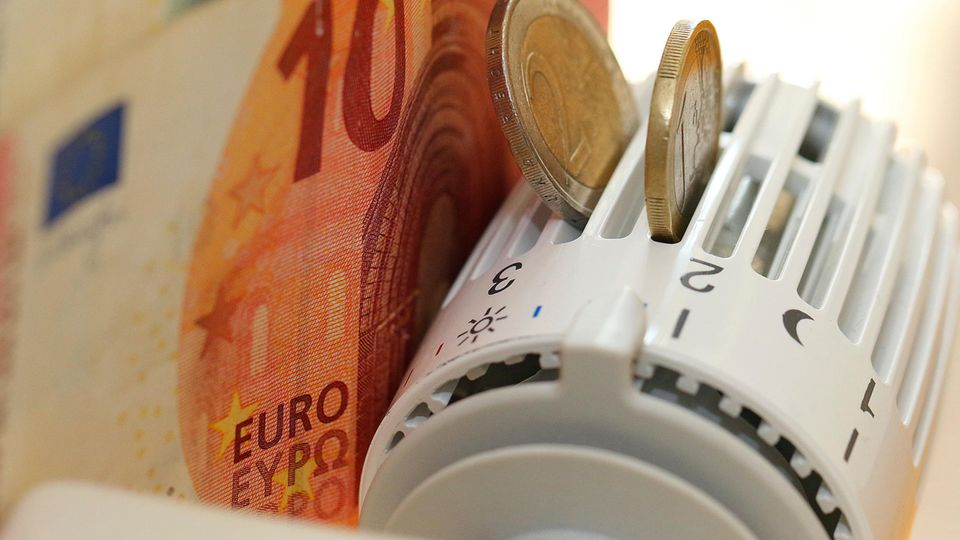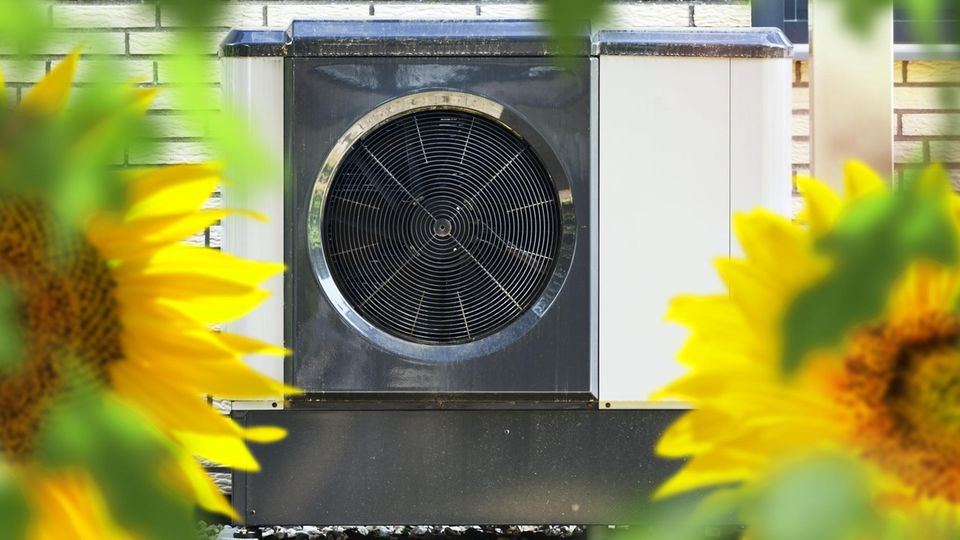KfW funding
Applications possible from today: This is how you get the heat pump subsidy
Heat pump production at Bosch: KfW is supporting the installation of heat pumps with new subsidies
© dpa / Andreas Arnold
If you have your heating system converted to climate-friendly heat pump technology, the KfW development bank will pay part of the costs – even retroactively.
Homeowners who want to switch to more climate-friendly heating systems have been able to submit applications to the KfW development bank since Tuesday – even retroactively for projects that have already been started. First of all, this applies to owners of single-family homes who live in them themselves (Funding Program 458).
In the morning there were waiting times when registering on the KfW portal. “Ahead of you in the waiting room are: 529 people. The waiting room has been stopped,” it said on the website shortly before eight o’clock. Later, the virtual queue quickly became smaller, allowing access to the portal within minutes.
The new funding is linked to the traffic light coalition’s heating law, which has been in force since January 1st. Homeowners can apply for up to 70 percent of eligible costs. There is a basic subsidy of 30 percent for the installation of a heating system that is considered climate-friendly, such as a heat pump. Bonuses can also be paid if you use the house yourself and your salary falls below a certain salary limit. A contract with a specialist company is also required.
How much is the subsidy for heat pumps?
There had been bitter disputes over the heating law for months. In general, functioning heaters can continue to be operated. This also applies if a heater breaks but can still be repaired. Since January 1st, it has been mandatory that new buildings in new development areas must have heating with 65 percent renewable energy. In many cases this is a heat pump.
The grant is a maximum of 23,500 euros. It is made up of various components: There is a basic subsidy of 30 percent of the investment costs for replacing old oil and gas heating systems with new heating systems based on renewable energies. These include heat pumps, solar thermal systems or biomass heating systems. This basic funding is open to private homeowners, landlords, companies, non-profit organizations and municipalities.
There is an additional efficiency bonus of five percent for heat pumps that use water, soil or wastewater as a heat source or that use a natural refrigerant. A surcharge of 2,500 euros is granted for biomass heating systems if they comply with a certain dust emission limit.
There is also an income bonus of 30 percent of the investment costs. However, only owners of a house or apartment who live there receive this. Requirement: You have a taxable household annual income of up to 40,000 euros.
There is also an additional speed bonus amounting to 20 percent of the investment costs – as an incentive for the quickest possible conversion. From 2029 onwards, this bonus is to be reduced by three percentage points every two years. From January 1, 2037, the bonus will no longer be available.
According to the ministry, this “speed bonus” is granted for the replacement of functional oil, coal, gas or night storage heaters as well as biomass and gas heaters that are more than twenty years old. After the construction summit, the plan was actually to increase the “speed bonus” to 25 percent in 2024 and 2025 and, on the other hand, to Housing company and landlords to expand. But that wasn’t possible for cost reasons. After the Federal Constitutional Court’s budget ruling, the federal government has to plug billions in holes.
Can you apply for multiple grants at the same time?
The bonuses should be able to be combined, but only up to a maximum funding rate of 70 percent. The maximum eligible investment costs for replacing the heating system are 30,000 euros for a single-family home or the first residential unit in an apartment building. In this case, the maximum amount of state subsidy is 21,000 euros. For the second to sixth residential units there is an upper limit of 15,000 euros each, and from the seventh onwards it is 8,000 euros each.
In an apartment building, the eligible costs increase by 15,000 euros for the second to sixth residential unit and by 8,000 euros for the seventh residential unit and above. For non-residential buildings, according to the ministry, there are limits to the eligible costs based on the number of square meters.
How can I apply for funding retroactively?
According to the ministry, heating replacement can be funded from the date of publication of the guideline in the Federal Gazette on December 29th. “If a project starts between the date of publication of the funding guidelines in the Federal Gazette (December 29, 2023) and August 31, 2024, the application can be made up to November 30, 2024,” writes the KfW on its website.
According to the transitional regulation, according to the ministry, a completed delivery or service contract with a specialist company must be submitted when applying for heating subsidies and other efficiency measures.
What new funding should there be?
The funding program for heating replacement is expected to be expanded to include owners of existing apartment buildings from May 2024. Then they can also apply for state subsidies to convert to a heat pump or other subsidized types of heating.
The same should also be possible for homeowners’ associations in Germany, provided that measures are implemented on common property
9 images
Owners who rent out single-family homes are also expected to be eligible to apply from August 2024; as well as homeowners who live in or rent out an apartment in an apartment building, provided that measures are implemented on the separate property.



